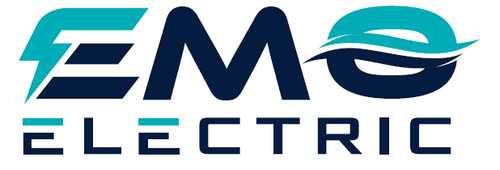The lifespan of an electric boat battery can vary widely depending on several factors, including the quality of the battery, how the battery is used and maintained, charging practices, and environmental conditions. Here are the key factors that influence the electric outboard's battery lifespan:
1. Battery Chemistry: The type of battery chemistry used in the electric boat outboard plays a significant role in determining its lifespan. Lithium-ion batteries, for example, are commonly used for electric outboards due to their high energy density and longer lifespan compared to traditional lead-acid batteries.

2. Depth of Discharge: The extent to which the outboard's battery is discharged and recharged, known as the depth of discharge (DoD), affects the battery's lifespan. Shallow discharges (using only a portion of the battery's capacity) and avoiding full discharges can help extend the battery's life. We recommend that users avoid running their electric boat's batteries below 20% on a regular basis.
3. Charging Practices: How the electric boat battery is charged also impacts its longevity. We recommend charging your battery before it gets below 20% and avoiding charging your battery if it still has more than 80% charge. Modern battery management systems often help optimize charging processes to prolong battery life. The most important thing is that the battery doesn't deeply discharge and reach a true zero percent charge. This typically happens when a customer runs the battery down to zero percent and then lets it sit for weeks or months. Before the winter, it's important to charge your battery to the percentage that the manufacturer recommends, and check the battery as needed over the winter.

4. Temperature: Battery performance and lifespan are influenced by temperature. Extreme temperatures, both hot and cold, can degrade the battery over time. Operating and storing the boat and battery within the recommended temperature range is essential. If possible, it's best to avoid leaving the boat's batteries outside over the winter if it will be exposed to freezing temperatures.
5. Usage Patterns: The frequency and intensity of use affect the battery's lifespan. Electric boat batteries that experience frequent deep discharges and rapid charge cycles may degrade faster than those used more moderately. Most modern lithium batteries are rated for 500 to 3000 full discharge cycles. We find that most recreational boating customers need to replace their electric boat's battery because of time and not the number of discharge cycles.

6. Maintenance: Proper maintenance, including regular inspections, cleaning, and ensuring good electrical connections, can contribute to a longer battery lifespan. Torqeedo and ePropulsion recommend spraying the contacts on their electric outboard batteries once per month during regular use. The majority of problems we see with small electric outboards are due to issues with the electrical contacts. It's best to keep them covered when not plugged in, especially if they're near salt water.
7. Quality: The quality of the electric boat battery itself plays a significant role in determining how long it will last. High-quality batteries designed for marine applications are likely to have better durability and longer lifespans. ePropulsion and Torqeedo both use high-quality batteries, and we recommend using the manufacturer's batteries with their electric outboards. That being said, ePropulsion approves the use of certain third-party batteries with their electric outboards.

In general, modern lithium-ion batteries used in electric outboards have a useful life (defined as 70% or more of original capacity) of anywhere from 7 to 10 years if the battery is well cared for. It's important to note that while the battery's capacity may decrease over time, it doesn't necessarily mean the battery becomes unusable. A battery with reduced capacity may still be suitable for certain applications, though it might not provide the same range or performance as a new battery. All lithium batteries will slowly lose capacity over time, generally at a rate of 3-4% per year, even if they are well maintained.
Electric boat owners can maximize the lifespan of their electric boat outboard batteries by adhering to manufacturer guidelines, adopting good charging practices, avoiding extreme operating conditions, and performing regular maintenance. As battery technology continues to evolve, we can expect improvements in both battery longevity and performance, further enhancing the viability of electric boat propulsion.
For the electric outboards that we distribute here at EMO Electric, the batteries all have great longevity. Each battery pack has different advantages depending on what boating activities you need an electric motor for. For instance, ePropulsion’s E-Series batteries have 3000 cycles of battery life at 80% DOD, which is six times the average lifespan a lead-acid battery. Commercial clients could potentially use E-Series batteries every day for over eight years.
If you are interested in purchasing an electric outboard, send us an email! We are here to help you with any questions or needs you may have to help set you up with the right electric outboard for you!


